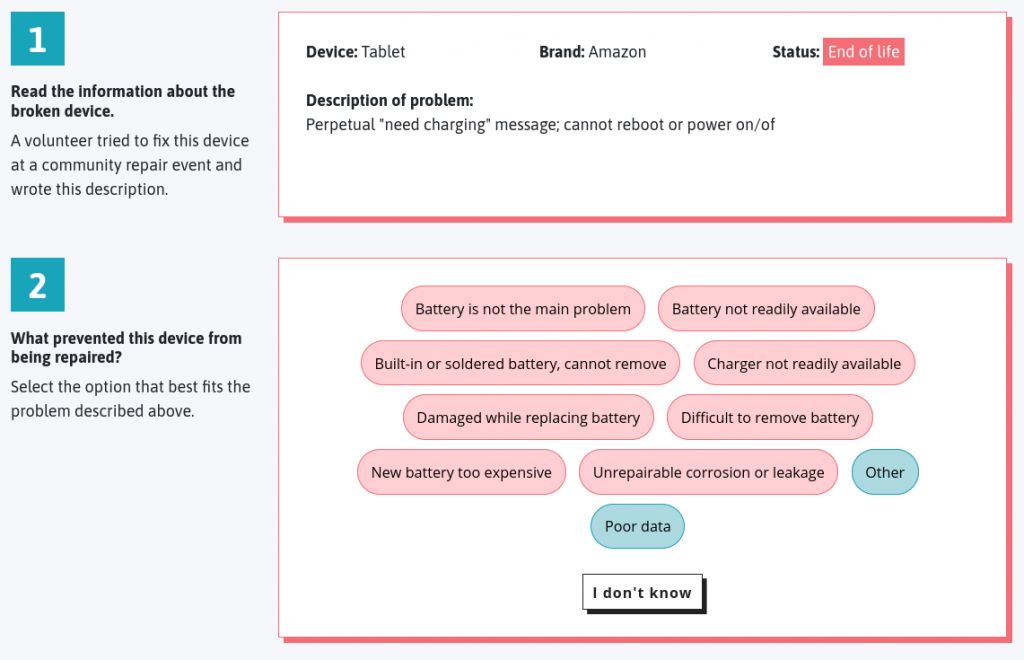Open Repair Alliance member The Restart Project has just launched “BattCat”, a new interactive, people-powered investigation into why devices fail. This time they are asking for your help to learn why repairs involving batteries are often too hard to complete.
The microtask uses data from a thousand repairs which couldn’t be completed at community repair events from around the world. These were shared by anstiftung, Fixit Clinic, Repair Cafe Foundation, Repair Cafe Wales and The Restart Project – all using the Open Repair Data Standard.
Batteries are hard to replace
We’ve probably all seen devices stop working because something went wrong with the battery.
About 50% of all repairs attempts involving batteries are not successful at community events. We want to learn more about the causes: is it because of the price or scarce availability of spare parts? Or is it because of product designs making it hard to replace the battery?
With your help, we want to categorise what went wrong with each of these repairs. We’ll use the insights to push for legislation to make future products easier to repair.
Pushing for the Right to Repair
This is a timely issue, as the European Commission is currently investigating new legislation aiming to improve the environmental performance of batteries and products containing batteries. One aspect being considered is a removability and replaceability clause: ensuring that all products come with a removable and user-replaceable battery. We think this is important from the perspective of repairing products.
However, very little independent data exists about how battery-related problems make repairing electrical and electronic products difficult or impossible. In some cases, hard-to-remove batteries might mean products become e-waste simply because the battery health is reduced. We want to use the results of BattCat as evidence of the need for user-replaceable batteries in future consumer products.
Get involved

When you try BattCat, you are presented with data from an attempted repair. You’ll be prompted with options on the barriers encountered, or next steps required to complete a repair. It’s easy and you can participate even if you’ve never repaired a battery problem yourself. We’d love your feedback in the BattCat conversation.
You can try BattCat in other languages too: Dutch, French, German, Italian and Spanish.
And if you’re curious about our work in this area, you can join an event on Saturday 31st July, where we’ll jointly work on BattCat as well as previous investigations: PrintCat on printers and TabiCat on tablets.